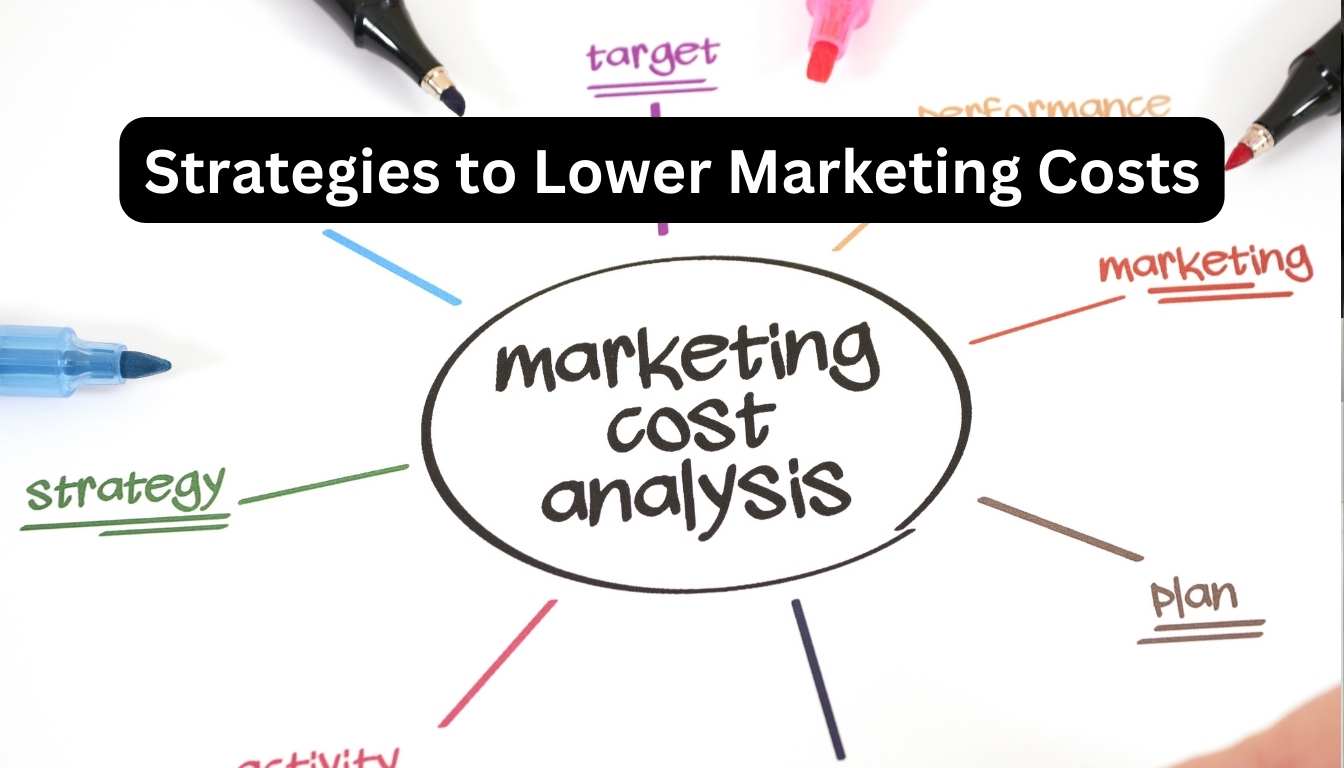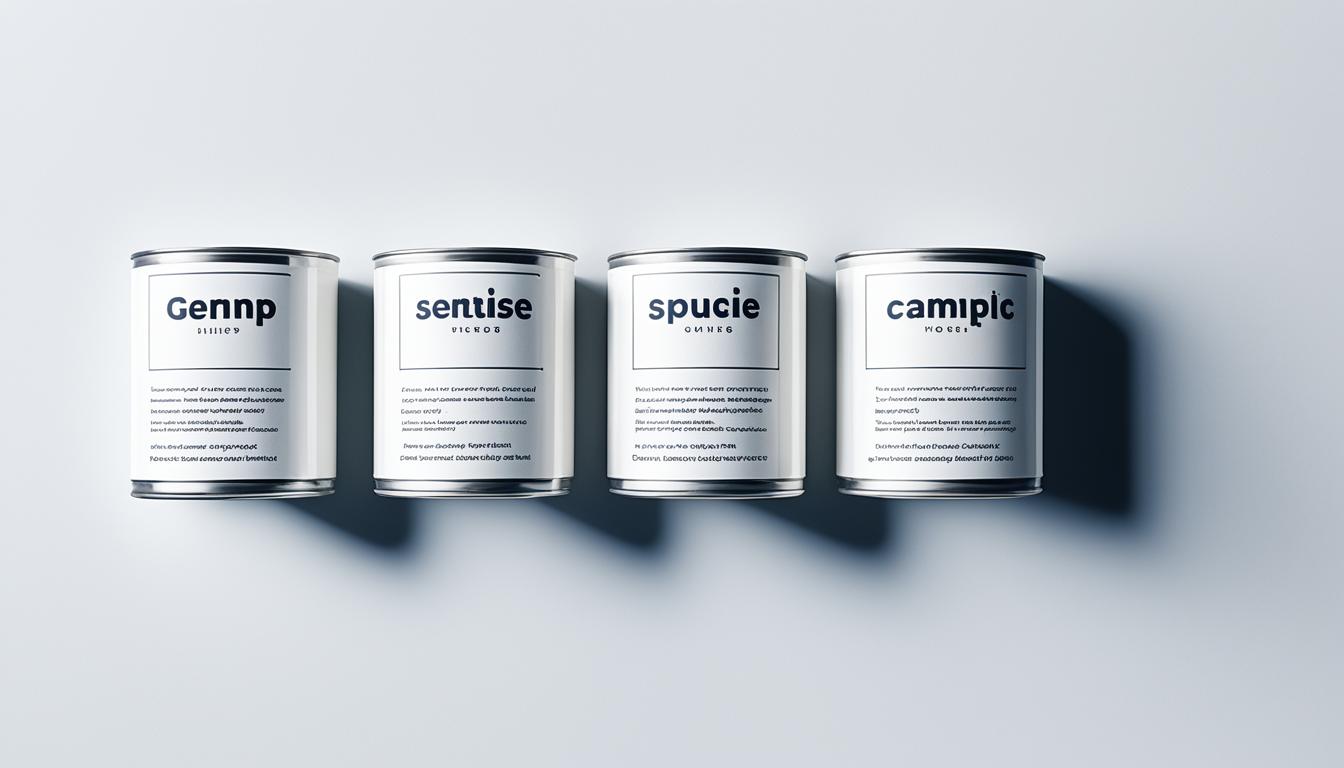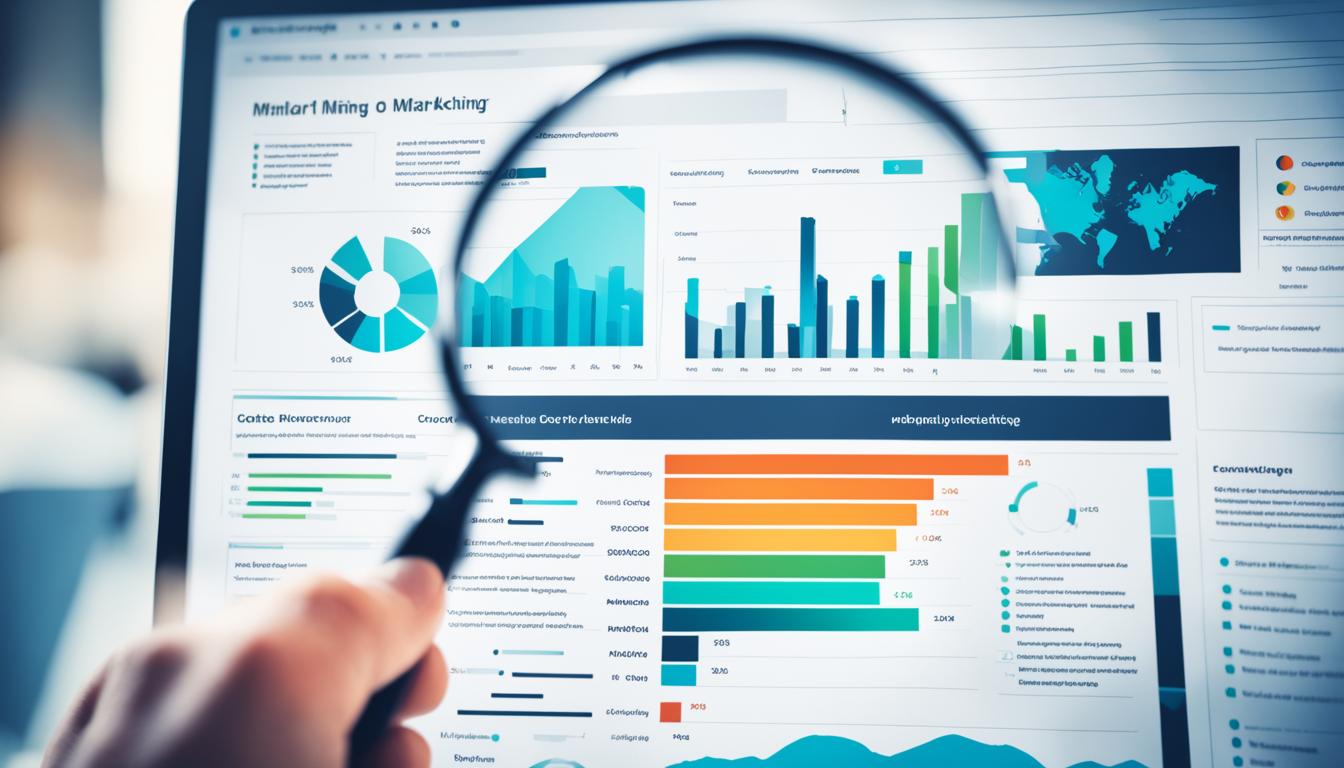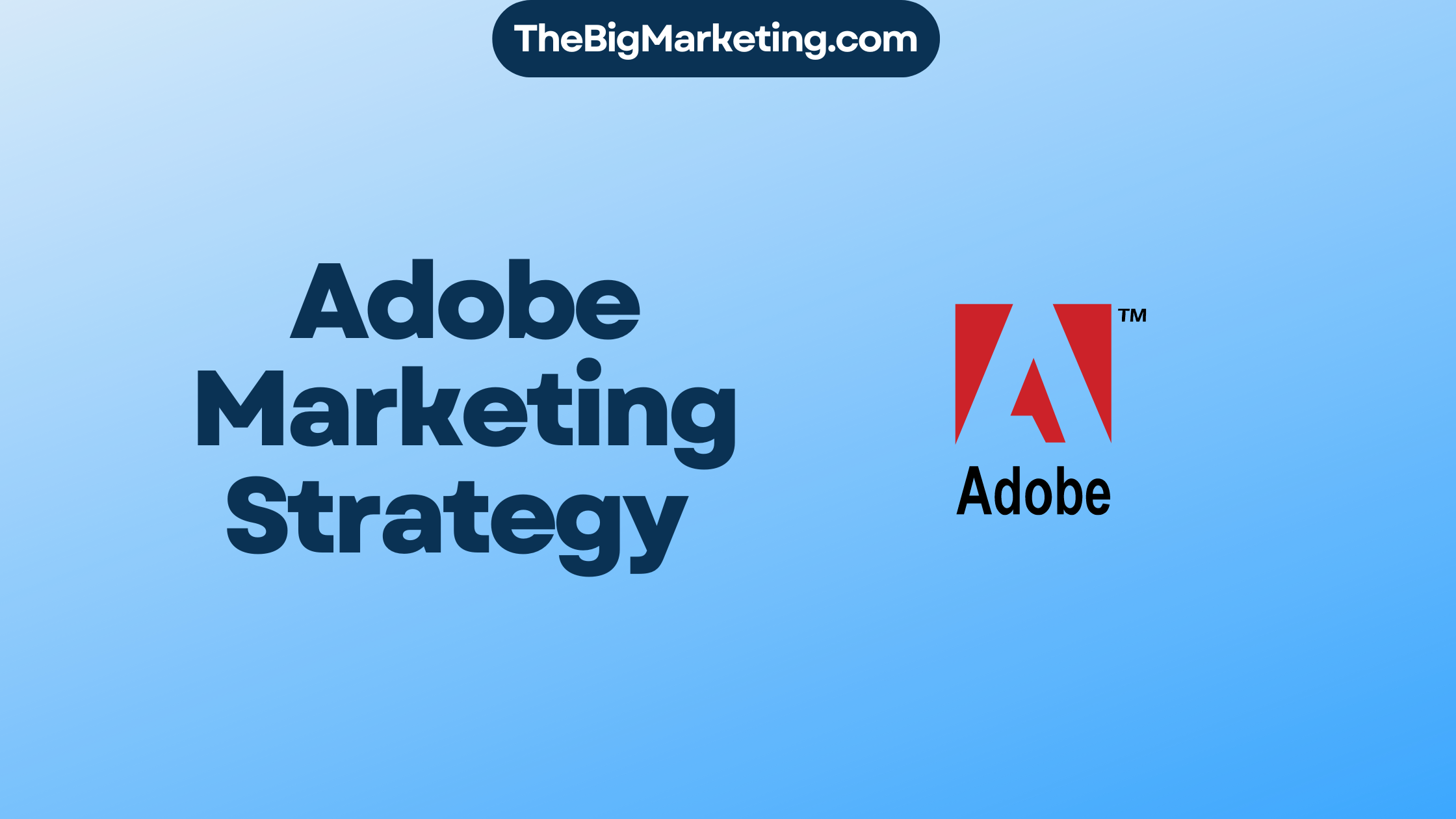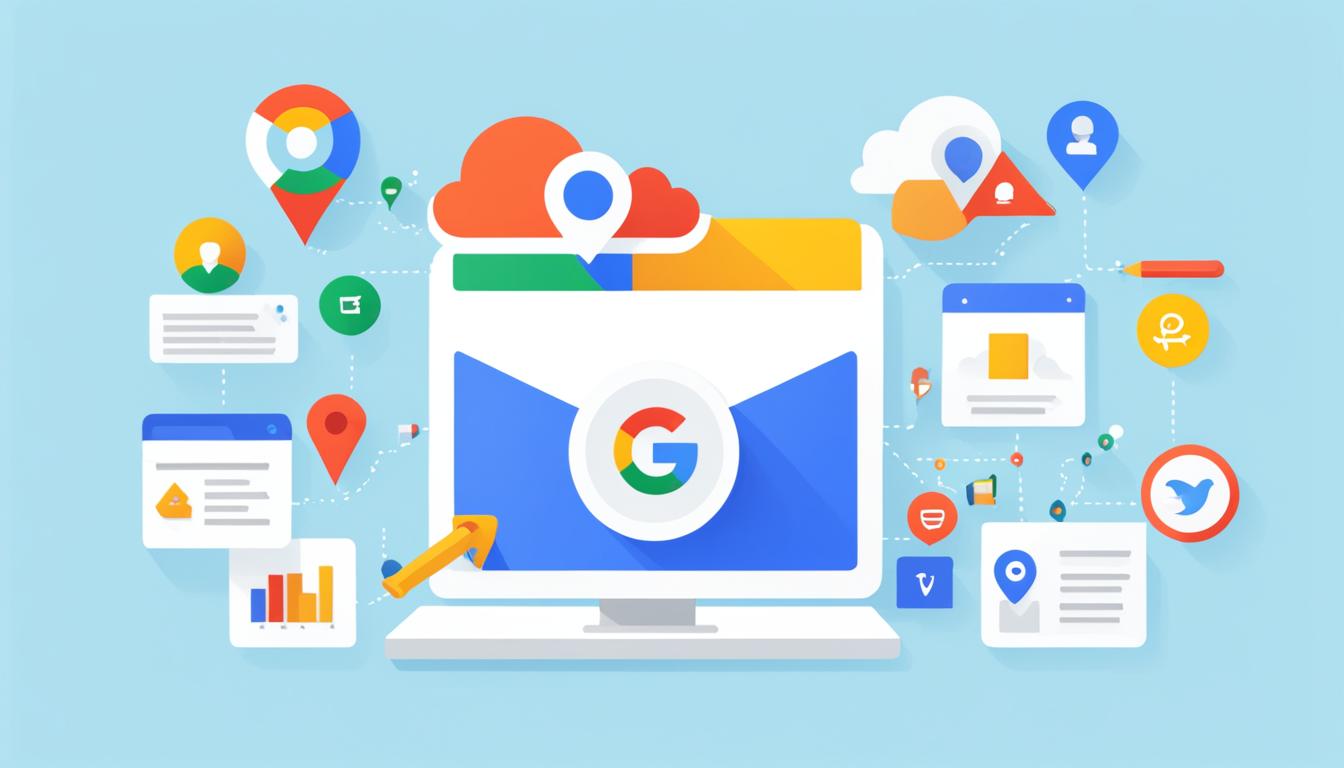The music industry moves fast and is super competitive. To stand out, musicians must market themselves well. This piece will look at different music marketing approaches. We’ll use real-life examples to show how musicians can boost their digital presence.
Key Takeaways:
- Music marketing is key for musicians to stand out in the crowded music industry.
- Effective music marketing mixes different strategies to fit a musician’s goals and audience.
- Promoting music online can be done through social media, personal websites, PR, and working with influencers.
- Engaging performances and networking with other artists help build a strong fanbase for long-term success.
- PR and getting your music played on air can really increase a musician’s exposure and credibility.
Building a Social Media Presence
Nowadays, a strong social media presence is key for successful music marketing. Musicians can talk directly to their fans, share their songs, and grow a loyal fanbase through social media. Using smart strategies on these platforms can make their music known to more people.
It’s important for musicians to pick social media platforms that fit their music style, audience, and what they like best. Facebook, TikTok, and Instagram are great for showing off their skills, connecting with fans, and gaining followers.
Facebook is great for music marketing because musicians can set up artist pages, post updates, advertise shows, and talk to fans live. With lots of users, Facebook helps musicians make a name for themselves and reach different people.
TikTok has become a top spot for promoting music, especially for new artists. Its short videos and focus on music let musicians make content that can go viral and bring in new fans. Advertising on TikTok helps musicians spread the word about their songs.
Instagram is perfect for musicians to share pictures, videos, and what happens behind the scenes. By using Instagram Stories, IGTV, and live videos, musicians can show who they are, chat with fans, and promote their music in a fun and real way.
When planning a social media strategy, musicians should think about who they want to reach, their goals, and their budget. It’s good to post often but not too much. The goal is to keep fans interested without bothering them too much.
Real connections are vital for a loyal fanbase. Musicians should talk back to comments, messages, and other interactions. By building good relationships with fans, musicians can create a community that supports their music and helps share it with more people.
Using social media ads can also help reach more people and promote music better. Ads on Facebook and Instagram let musicians target certain people based on their likes, where they live, and other details. This ensures the music reaches those who would most enjoy it.
Benefits of Building a Social Media Presence:
- Directly engage with fans, build a community, and receive feedback.
- Promote music releases, live shows, and merchandise effectively and efficiently.
- Build brand identity and establish a professional online presence.
- Amplify music promotion efforts through social media advertising.
- Gain insights into audience preferences and behaviors through analytics.
A Comparison of Social Media Platforms for Music Marketing
| Social Media Platform | Fan Engagement | Music Discovery | Target Audience |
|---|---|---|---|
| High engagement through posts, comments, and live streams. | Users can discover new music through shared content. | Wide range of age groups and interests. | |
| TikTok | Viral potential through creative and engaging videos. | Opportunity for music to gain traction and reach new audiences. | Younger demographic, particularly Gen Z. |
| Engagement through visual content, stories, and live streams. | Opportunity to showcase music visually to a wide audience. | Wide-ranging demographic, particularly younger users. |
Utilizing an Artist Website and EPK
An artist website and EPK are key tools in music marketing. They help musicians show off their work, photos, tour information, and merchandise online. It’s a central place where fans and professionals can learn all they need to know about the artist.
But, having a website alone isn’t enough. Musicians must also include an EPK on their site. An EPK gives a full look at their music and brand. It should have stuff like a bio, press links, and info on where to find their music online.
A great bio shares the artist’s story, style, and big moments. Adding press coverage and music reviews proves the artist’s talent. It makes people in the music world pay attention.
The EPK should also link to the musician’s social media and streaming pages. This makes it easy for people to find and enjoy their music. These links should go to Spotify, Apple Music, SoundCloud, YouTube, Facebook, Instagram, and Twitter.
Music Reviews in the EPK
Music reviews are vital. They build the artist’s reputation and make them more visible. Good reviews in the EPK help show off the artist’s skill. They’re important for fans and industry people looking for new music. These reviews make it easier for influencers and media to support the artist.
Here’s how you might set up an artist website and EPK:
| Artist Website | EPK (Electronic Press Kit) |
|---|---|
Using a website and EPK right helps musicians build a strong online spot. It lets them share their music and brand easily. And it helps people in the industry, fans, and media spread their music.
Reaching out to Blogs, Playlist Curators, and Press Outlets
Pitching your music to blogs, playlist curators, and press outlets boosts your visibility. This increases your audience. Being featured on big platforms generates buzz and attracts new fans.
Connecting with industry influencers is easier using platforms like Groover. These platforms let you submit songs to bloggers, playlist curators, and journalists. This increases your chances of getting heard by the right people.
Also, create an Electronic Press Kit (EPK) for your music releases. It should have your artist bio, press links, social media, and music reviews. A strong EPK makes it easy for curators and reviewers to promote your music.
Getting playlist placements and press coverage boosts your marketing. It exposes your music more and helps your website’s SEO. The more high-quality sites link to your site, the better your search engine ranking.
Getting Music Reviews and Press Coverage
Getting press coverage starts with reaching out to relevant bloggers and journalists. Find publications that cover your genre. Make your pitch personal, highlighting what makes your music stand out. Include a link to your EPK.
Engage with bloggers and journalists on social media too. Comment on their posts or share their articles to build relationships and catch their attention.
Pitching Your Music to Playlist Curators
Being on popular playlists can bring thousands of new listeners. Find playlists that fit your genre. List the curators and their contact info.
Personalize your pitch to playlist curators. Explain why your music fits their playlist. Offer a link to your song and share its success. Always thank them for their time.
Keep good relationships with playlist curators. Being professional and updating them on new releases can get you future spots.
Diversify Your Outreach
Besides blogs, playlist curators, and press outlets, explore other promotion chances. Look into collaborating with influencers or content creators on YouTube or Instagram. Create engaging content together that highlights your music.
Always be consistent and professional when reaching out. Follow up and thank anyone who features or places your music. Building relationships in the music industry leads to new opportunities and collaborations.
Driving Interest and Engagement with Landing Pages
Landing pages are key for successful music marketing. They help highlight specific parts of a musician’s brand. Artists can share music videos, promote album pre-sales, run music contests, and gather fans’ emails.
Landing pages are perfect for showing off music videos. Artists can embed their videos to grab visitors’ attention. This encourages fans to share the video on social media. It helps the video reach more people and boosts the artist’s visibility.
Landing pages also promote album pre-sales effectively. They can feature album art, teasers, and a release countdown. This builds excitement among fans. Which can lead to more pre-sales and chart success.
Running music contests through landing pages is another great use. It draws attention and gets fans involved. Contests create buzz and let artists collect creative fan content, like cover song videos or artwork.
Gathering email addresses is another benefit of landing pages. By offering something special in return, artists can grow their email lists. Having direct contact lets musicians update their fans easily. This includes news on album releases, tour dates, and more.
Benefits of Using Landing Pages for Music Marketing:
- Targeted Campaigns: Landing pages let artists focus their campaign on specific groups. This means messages and visuals can be customized for the right audience.
- Increased Conversion Rates: A clear call-to-action and engaging design can boost conversion rates. This leads to more engagement and sales.
- Enhanced User Experience: Landing pages provide a smooth and focused browsing experience. Visitors can concentrate on the main content or campaign without distractions.
- Data Collection: Landing pages are great for collecting data, like email addresses. This data helps artists refine their marketing and connect more with their fans.
In conclusion, landing pages play a vital role in music marketing. They help artists promote videos, albums, and contests, plus gather emails. Using landing pages right can boost interest, enhance engagement, and strengthen an artist’s online presence.
Maximizing Live Shows for Marketing
Live shows are key for musicians to market themselves. They can personally connect with fans and show their skills to more people.
At these events, artists can interact directly with the crowd. This creates memorable moments. These moments help in building a strong follower base.
Live shows are more than just immediate experiences. Artists can record these events for music videos or streaming. This way, they reach fans who couldn’t make it and attract new ones.
Concerts are also great for selling merchandise. Offering unique items at shows lets fans take a piece of the experience home. It’s a way for them to support their favorite artist.
To get the most out of live shows, musicians should use concert marketing tactics. Promoting through social media and local ads is key. Working with other artists or influencers helps reach more people.
The Importance of Fan Engagement
Fan engagement is vital for the success of live shows. Interacting with fans before, during, and after shows builds a community. Artists can use meet-and-greets or social media to connect.
Encouraging fans to share their own content boosts show promotions. Sharing their photos and reviews on platforms attracts more fans. It also builds excitement for future events.
Live streaming events is another way to reach fans. It lets people worldwide feel the concert vibe. This approach also opens up chances for cross-promotion and global fan engagement.
Networking with Artists and Influencers
Networking with artists and influencers is key in music marketing. Musicians work with like-minded artists to reach new fans. This can lead to more exposure and help them grow their audience.
Going to music conferences is a great way to meet others in the industry. Musicians can show off their talent, meet other artists, and make important connections. These events offer chances to learn about music trends and start valuable relationships.
Influencers also play a big role in promoting music. Partnering with them can help musicians connect with more people. It also builds trust and credibility in the music world.
Creating a community of artists is another good strategy. Musicians can support each other on social media. This community is a place for inspiration, collaboration, and growth.
The Power of Music Collaborations
Music collaborations have become very popular. They allow artists to mix their talents and reach new listeners. Collaborations can range from featuring in each other’s songs to creating entire projects together.
The song “Senorita” by Shawn Mendes and Camila Cabello is a great example of a hit collaboration. It topped charts worldwide. This partnership brought their fans together, boosting their popularity.
This image shows how collaborations can expand an artist’s reach and connect them with new fans.
In summary, connecting with other artists and influencers is crucial for music marketing. Collaborating, attending conferences, and working with influencers helps musicians find new fans and get more exposure. Creating an artist community offers support and chances for growth. Through these networking efforts, musicians can improve their marketing and advance their careers.
Investing in PR and Airplay
Investing in PR and airplay can be crucial for independent music artists. These strategies help promote your music and reach more people. They can make a big difference in your music marketing efforts.
Hiring a publicist who knows the music industry can be a smart move. A good publicist has connections with key people like journalists and influencers. They can get your music noticed by getting you interviews and reviews, boosting your exposure.
Another option is to work with a radio tracker for airplay on radio stations. This can help you reach new fans and increase your music’s reach. Focus on stations that fit your music style and target audience for the best results.
Think about your budget when considering PR and airplay. These services can be expensive, but they can also bring great results. Make sure they fit with your marketing goals and the potential benefits justify the costs.
For those on a tight budget, a DIY approach to PR and airplay is possible. You can contact radio stations and music blogs yourself. Use your artist website and EPK to share the information and materials needed for press coverage.
To promote your music online, use social media platforms. Share updates about your music and encourage your followers to listen and support you. Being genuine and engaging with your audience can help you grow your fanbase.
PR and airplay take time to show results. You need to be patient and persistent in building relationships with media and securing airplay. Once your music starts getting noticed, it can have a big impact on your career.
**Image**
| Benefits of Investing in PR and Airplay | Considerations |
|---|---|
| 1. Increased exposure and visibility within the music industry | – Assessing your music marketing budget |
| 2. Credibility and validation as an independent artist | – Setting realistic expectations for potential results |
| 3. Access to industry connections and opportunities | – Exploring DIY PR and airplay strategies |
| 4. Expansion of your fanbase and audience reach | – Leveraging social media for promotion |
Conclusion
Promoting music is key for artists today. With good marketing plans, they can reach more people and share their music widely. This helps artists stand out and connect with listeners deeply.
Social media platforms like Facebook, TikTok, and Instagram are great for artists. They let musicians talk to fans and grow a dedicated fan base. Having a professional website and an Electronic Press Kit (EPK) also boosts visibility. It makes it easier for fans and music pros to find them.
To do well, musicians must adapt their marketing to meet their goals. With the music scene always changing, flexibility is crucial. Strategies like PR campaigns, networking, and live shows can push their music further.
Using digital marketing well, musicians can shine in the crowded music world. By sticking to these methods and being creative, they up their chances of making it big. It’s about being smart and consistent in promoting their music.

